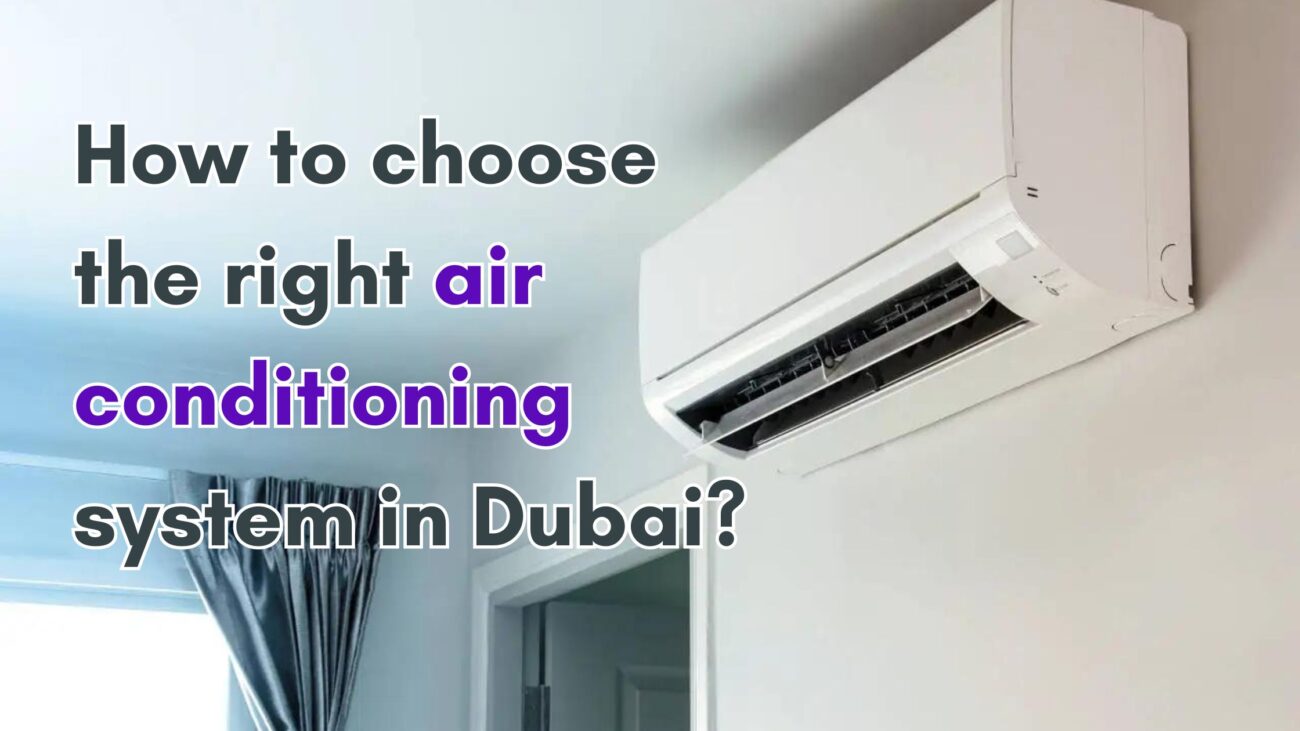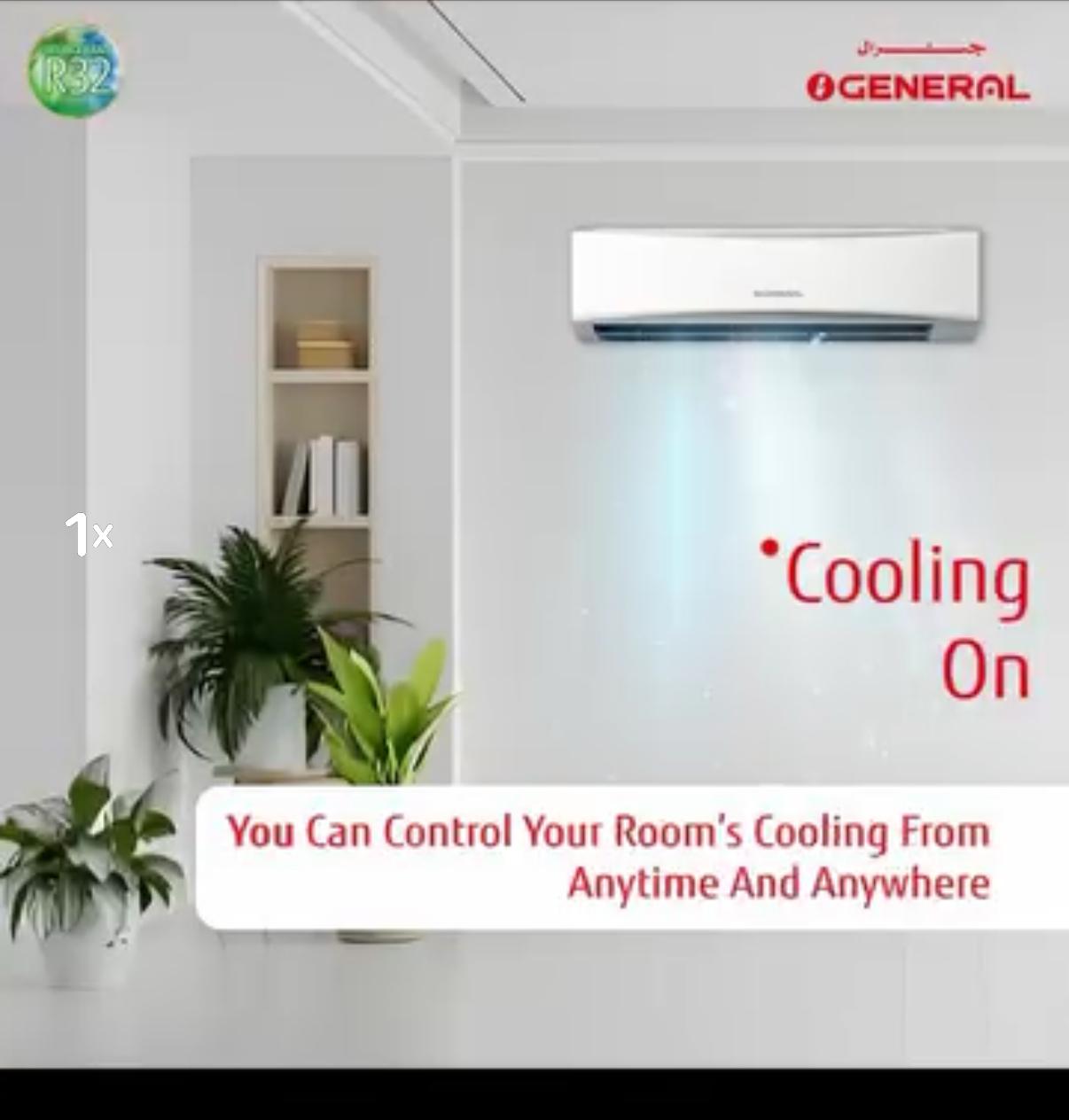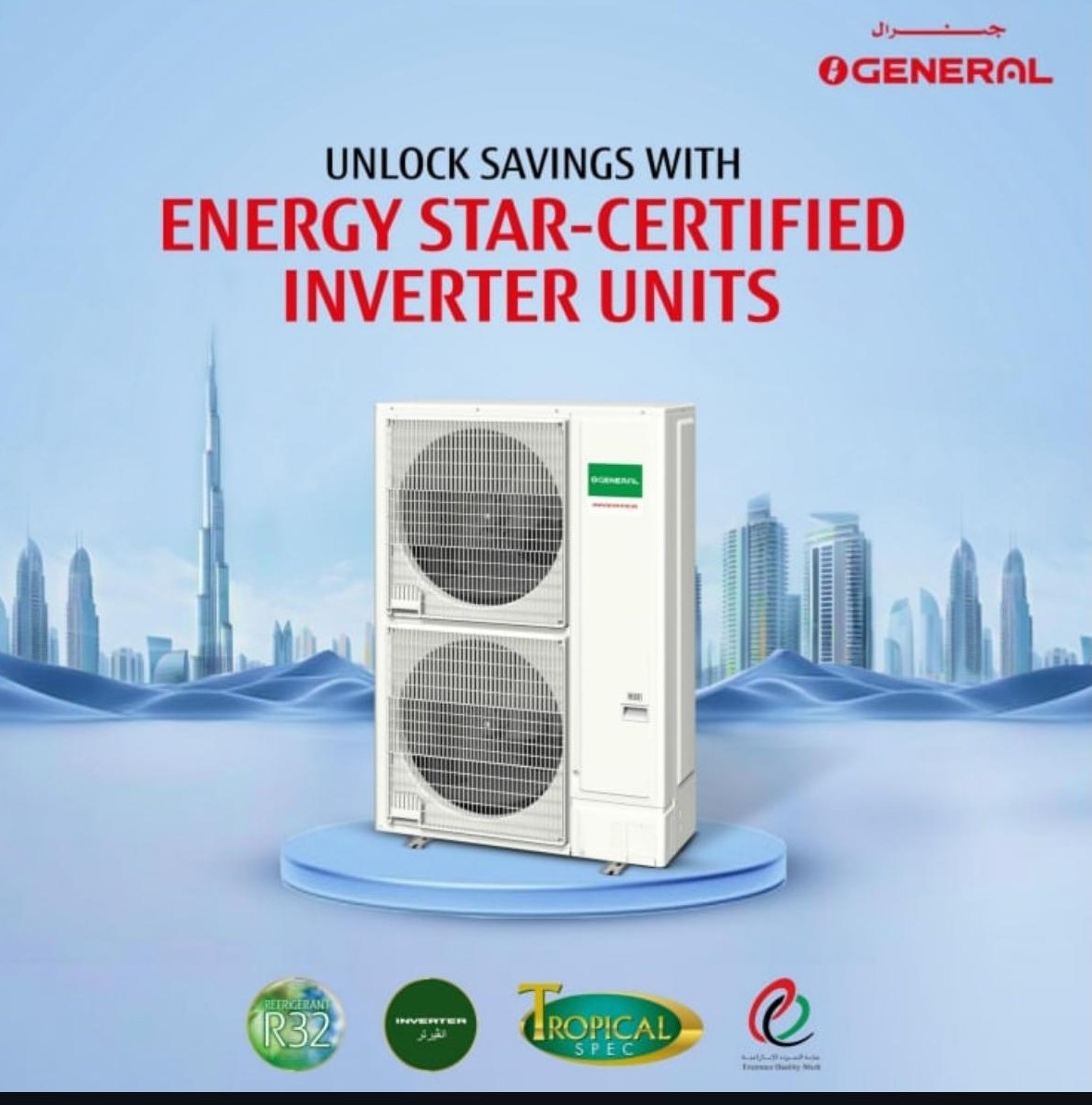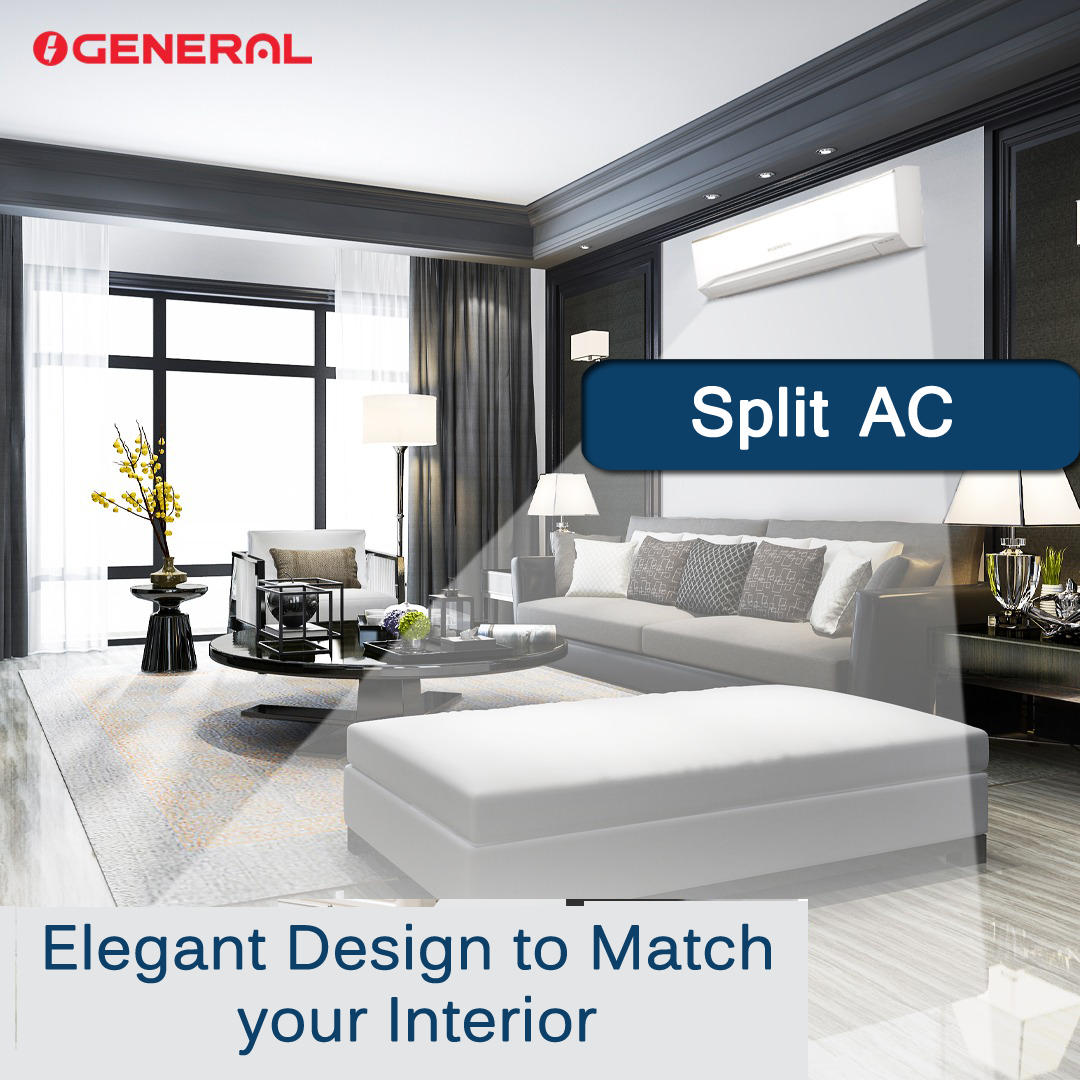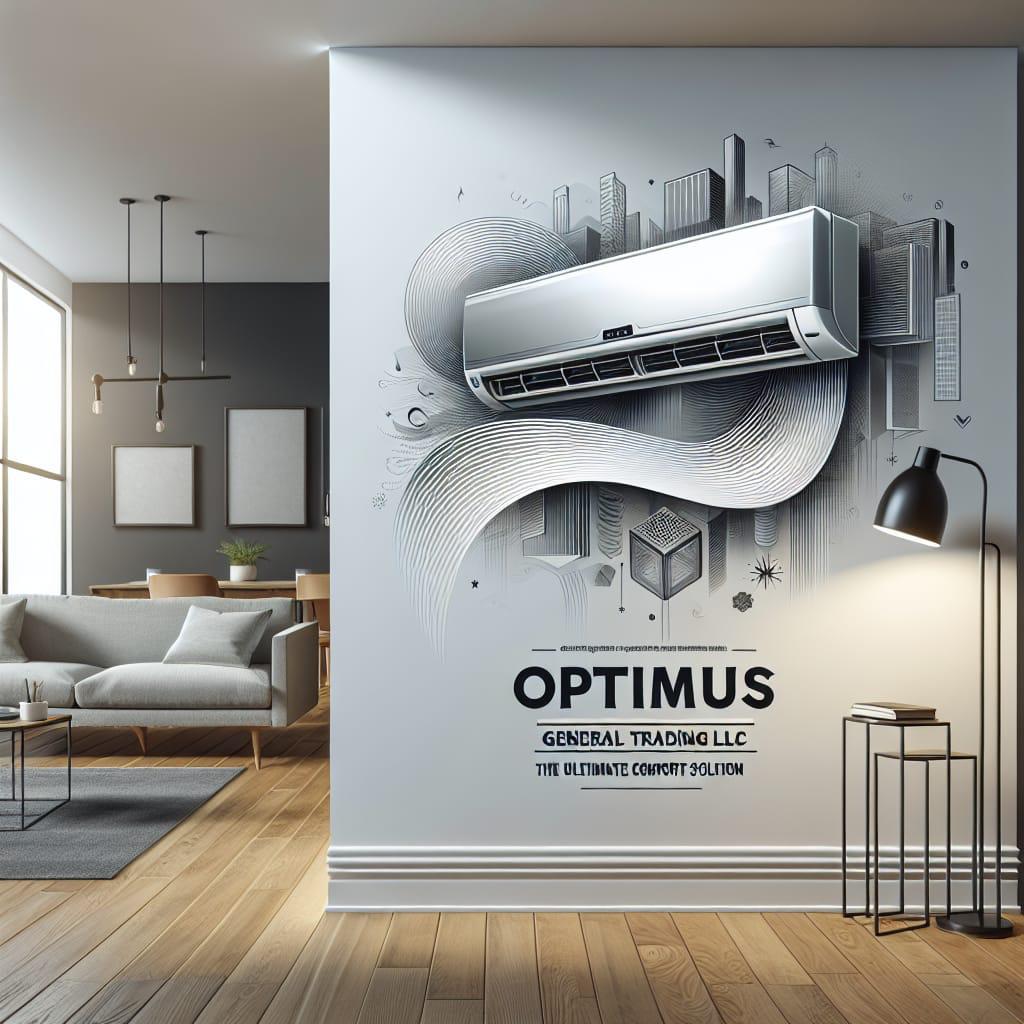How to Choose the Right Air Conditioning in Dubai?
Dubai’s hot climate makes air conditioning not just a luxury but a necessity. With temperatures soaring above 40°C in the summer, it’s crucial to select the right air conditioner (AC) for your villa or apartment. Whether you’re a homeowner or a tenant, the right AC supplier can significantly affect your comfort, energy bills, and the long-term value of your property. In this guide, we’ll take you through the key factors to consider when selecting the right AC for villas and apartments in Dubai. We’ll also include some unique facts, figures, and tips to help you make an informed decision.
Understand the Climate of Dubai
Before diving into the technicalities of AC units, it’s essential to understand the climate in Dubai. With an average summer temperature of 40-45°C and humidity levels exceeding 60%, cooling systems face heavy demands. Homes in Dubai, whether villas or apartments, require air conditioning that can efficiently handle these extreme conditions.
Do you know: Dubai holds the record for one of the hottest temperatures ever recorded at 52.1°C (125.8°F) in 2002.
What are the Types of Air Conditioning Available in Dubai?
When selecting an AC unit, it’s essential to understand the different types available on the market. The two most popular options in Dubai are Split AC systems and Ducted AC systems.
- Split AC Systems: These units are ideal for cooling individual rooms or zones. A split AC consists of two main components: the indoor unit that blows cold air and the outdoor unit that releases heat. They are highly efficient, cost-effective, and relatively easy to install.
- Centralized AC Systems: For larger villas or apartments, centralized AC systems are more suitable. These systems cool the entire house from a central location, delivering cool air through a network of ducts. Though installation costs are higher, centralized systems offer uniform cooling, lower long-term maintenance, and better energy efficiency.
How do you determine the right AC cooling capacity?
One of the most critical factors in choosing the right AC for your home is the cooling capacity, which is measured in British Thermal Units (BTUs). If the AC is too small, it won’t cool your space effectively. If it’s too large, it will waste energy and cause uneven cooling.
- For an apartment, an AC unit with 1.5 to 2 tons of cooling capacity is often enough for most rooms.
- For villas, which usually have larger rooms and higher ceilings, a more powerful system ranging from 3 to 5 tons may be required.
A quick rule of thumb is that for every square meter of living space, you need approximately 60 BTUs. However, factors like ceiling height, insulation, and the number of occupants should also be considered.
Why is energy efficiency important when choosing an AC system?
Dubai residents are increasingly conscious of sustainability and energy efficiency. With the UAE’s focus on reducing its carbon footprint, selecting an energy-efficient AC system is more important than ever. Energy-efficient systems not only lower your carbon footprint but also result in lower energy bills.
When choosing an AC system, look for units with a high Seasonal Energy Efficiency Ratio (SEER) rating or Energy Efficiency Ratio (EER). The higher the SEER or EER, the more efficient the unit is.
Dubai also mandates that air conditioning units should comply with the Emirates Authority for Standardization and Metrology (ESMA) regulations, which require energy-efficient appliances to have a minimum rating of 2 stars.
According to Dubai Electricity and Water Authority (DEWA), air conditioning accounts for nearly 70% of residential energy consumption in Dubai homes.
What Are the Smart Features and Automation Options for AC Systems?
In today’s tech-savvy world, smart AC units are gaining popularity. These units come equipped with Wi-Fi connectivity, enabling users to control the system via smartphone apps or home automation systems.
- Programmable Thermostats: Set a schedule to cool your home only when you’re there, reducing energy waste.
- Energy Monitoring: Some smart AC systems allow you to track energy consumption in real-time.
- Voice Control: Many systems are now compatible with Google Assistant, Amazon Alexa, or Apple’s Siri, providing seamless control.
In the long run, investing in smart AC technology can lead to substantial savings on your energy bills and provide a more comfortable living experience.
Consider Your Home’s Design and Layout
The design and layout of your villa or apartment play a crucial role in determining the best AC system. Factors to consider include:
- Ceiling Height: Rooms with high ceilings require more cooling capacity.
- Insulation: Homes with poor insulation will need more powerful AC systems.
- Window Size and Placement: Homes with large windows or those facing direct sunlight will heat up faster, requiring a more robust cooling system.
It’s also essential to consider the number of rooms in your home. For example, villas with open-plan living areas may benefit more from a centralized AC system, while individual rooms may work better with split AC units.
Air Quality and Filtration Systems
Given the dust and pollution levels in Dubai, selecting an AC system with a high-quality filtration system is a must. Some AC units come equipped with advanced air filtration and purification systems, which help eliminate pollutants, allergens, and bacteria from the air.
Look for AC units that include HEPA filters, UV light purification, or ionization technology to ensure that the air circulating in your home is clean and healthy.
Air Conditioning Installation and Maintenance Costs
Installation and ongoing maintenance are significant considerations when choosing an AC system. While split AC units are generally easier and cheaper to install, they often require more frequent maintenance compared to centralized systems.
On the other hand, centralized AC units have higher installation costs but offer long-term savings due to lower maintenance and energy consumption.
It’s essential to factor in the cost of professional installation, regular servicing, and potential repair costs when choosing the best AC for your home.
What are the Local Regulations and Building Requirements?
Different villas and apartments in Dubai may have specific guidelines regarding AC installations. It’s crucial to check with your building management or homeowner’s association to understand the limitations, especially if you’re considering installing a centralized system.
In some high-rise buildings, for instance, installing a split AC unit might not be feasible due to space constraints for the outdoor unit. In villas, homeowners may need to ensure that their AC units meet certain noise and efficiency standards.
Cost vs. Long-term Savings
Lastly, while cost is a significant factor in choosing the right AC, it’s important to balance upfront costs with long-term savings. More expensive, energy-efficient AC units might come with a higher initial price tag, but they can save you thousands of dirhams over their lifetime in reduced energy consumption and maintenance costs.
Additionally, government initiatives in Dubai encourage homeowners to switch to more energy-efficient appliances by offering rebates and subsidies. Research if there are any available programs that can help offset your AC system’s cost.
Conclusion
Choosing the right AC system for your villa or apartment in Dubai is no small task, given the city’s harsh climate. By considering factors such as the size of your home, energy efficiency, cooling capacity, and air quality, you can make an informed decision that maximizes comfort while minimizing costs.

